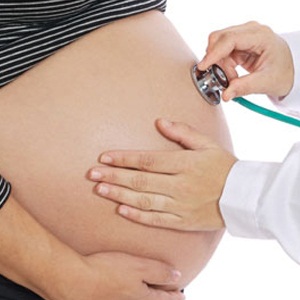
A woman who is HIV+ can have a healthy baby. Dr Avron Urison of AllLife explains the special care needed.
Are you living with HIV and interested in having children? Then know that you are not alone. The majority of HIV+ women are of child-bearing age. Advances in HIV treatment have greatly lowered the chances that a mother will pass HIV on to her baby. The risk of passing HIV from mother to baby can be as low as 1 in 100 when certain steps are taken.
In most cases, HIV will not cross through the placenta from mother to baby. If the mother is healthy in other aspects, the placenta helps provide protection for the developing infant. Factors that could reduce the protective ability of the placenta include in-uterine infections, a recent HIV infection, advanced HIV infection or malnutrition.
Unless a complication should arise, there is no need to increase the number of prenatal visits. Special counseling about a healthy diet with attention given to preventing iron or vitamin deficiencies and weight loss as well as special interventions for sexually transmitted diseases or other infections (such as malaria, urinary tract infections, tuberculosis or respiratory infections) should be part of the prenatal care of HIV-infected women.
What healthcare providers should be aware of
Health care providers should watch for symptoms of Aids and pregnancy-related complications of HIV infection. In addition, providers should avoid performing any unnecessary invasive procedures such as amniocentesis in an effort to avoid transmitting HIV to the baby.
A baby can become infected with HIV in the womb, during delivery or while breastfeeding. If the mother does not receive treatment, 25% of babies born to women with HIV will be infected by the virus. With treatment that percentage can be reduced to less than 1 per cent. Zidovudine (ZDV) is now used in combination with other anti-HIV drugs and is often used to prevent perinatal transmission of HIV. ZDV should be given to HIV-infected women at 14 weeks and continuing throughout pregnancy, labour and delivery. Side effects include nausea, vomiting and low red or white blood cell counts.
If no preventative steps are taken, the risk of HIV transmission during childbirth is estimated to be 10-20%. The chance of transmission is even greater if the baby is exposed to HIV-infected blood or fluids. Health care providers should avoid performing amniotomies (intentionally rupturing the amniotic sac to induce labor), episiotomies and other procedures that expose the baby to the mother’s blood. The risk of transmission increases by 2% for every hour after membranes have been ruptured.
Caesarean sections performed before labour or the rupture of membranes may significantly reduce the risk of perinatal transmission of HIV.
Women who have not received any drug treatment before labour should be treated during labor with one of several possible drug regimens. These may include a combination of ZDV with anti-HIV drugs. Studies suggest that these treatments, even for short durations, may help reduce the risk to the baby.
Treatment of baby important
The baby should also be treated with ZDV for the first six weeks of life. Eight percent of babies of women treated with ZDV become infected, compared with 25% of babies of untreated women. No significant side effects of the drug have been observed other than a mild anemia in some infants that cleared up when the drug was stopped. Follow-up studies show that the HIV-negative treated babies continued to develop normally.
About 15% of newborns born to HIV-positive women will become infected if they breastfeed for 6 months or longer.
The risk of transmission is dependent upon:
- Whether the mother breastfeeds exclusively
- The duration of breastfeeding
- The mother’s breast health
- The mother’s nutritional and immune status
The risk is greater if the mother becomes infected with HIV while she is breastfeeding.
- A woman who is HIV-negative or does not know her HIV status should exclusively breastfeed for six months.
- A woman who is HIV-positive and chooses to use replacement feedings should be counseled on the safety and appropriate use of formula.
- A woman who is HIV-positive and chooses to breastfeed should exclusively breastfeed for six months. The woman should also be advised regarding the changing risks to her baby during that six months, preventative treatments and early treatment of mastitis and oral problems, weaning plans and how to determine the appropriate time to switch to formula feeding.
Despite the numbers of HIV+ people who want to get pregnant, there is limited access to information, options, and therapies. Many health care providers are not discussing family planning with their HIV+ patients. Some do not have adequate information to share, while others openly discourage their HIV+ patients from having children. In spite of the challenges you may face when wanting to get pregnant, it is possible for HIV+ people to have children with good access to information about options and to appropriate treatment. When choosing to have a child as an HIV+ person, it is important to be an advocate for yourself and your future child. Finding the right health care provider who is supportive of your plans to get pregnant is a big first step.
(Dr Avron Urison, Medical Director at AllLife Pty Ltd - providers of life insurance for HIV positive individuals)




 Publications
Publications
 Partners
Partners











